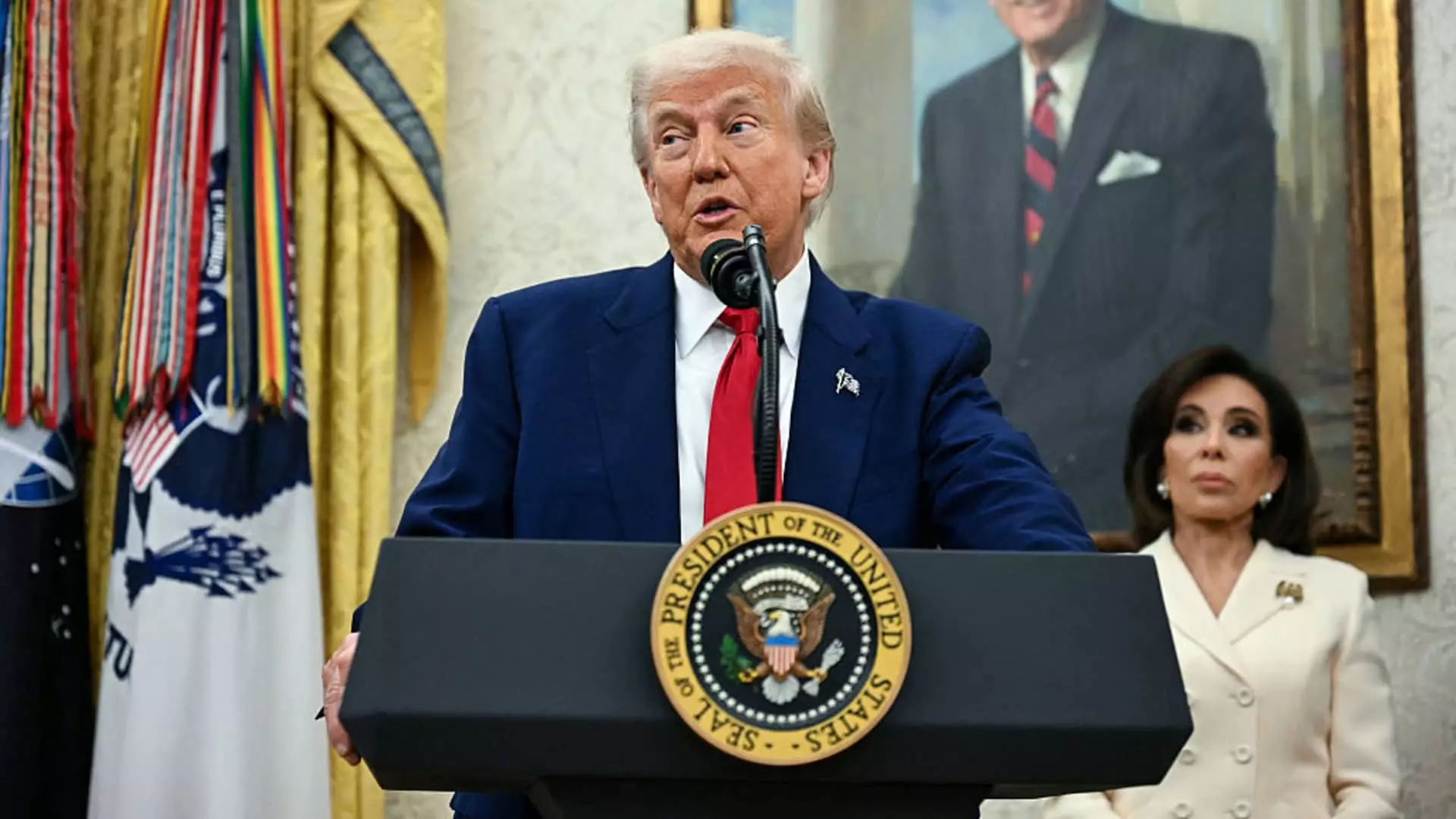Donald Trump’s approach to trade has often felt less like calculated economic strategy and more like a clumsy dance. The concept of the “TACO trade”—an acronym for “Trump Always Chickens Out”—encapsulates this troubling phenomenon perfectly. Over recent years, this has transformed into a narrative that critics effectively wield against the former president. It reflects a troubling trend: Trump’s penchant for announcing steep tariffs only to retract or soften them under pressure. This pattern has led to market volatility and an uneasy atmosphere for investors, revealing his impulsive and reactionary style.
His response to this term shows his aversion to scrutiny. When confronted about “chickening out,” Trump pivoted the narrative, framing his stall tactics as strategic negotiation rather than weakness. This doesn’t merely demonstrate a lack of accountability; it signifies a person unwilling to acknowledge the repercussions of his erratic decisions. The interplay between his bombastic announcements and subsequent retractions renders negotiations almost cartoonish—a reality television show masquerading as governance.
A Fragile Economy in Flux
The whims of the Trump administration’s trade policies have ignited chaos not just domestically but on a global scale. Markets reacted dramatically to his threats and retractions, revealing an economy dangling on the thread of his temperament. For instance, a recent barrage of tariff threats toward the European Union sent stocks into a nosedive, only for the president to reel back his threats days later. This on-again, off-again strategy leaves investors feeling uncertain, navigating a landscape that shifts like quicksand underfoot.
What’s particularly alarming is how these policies reveal a profound disregard for economic stability, a fundamental aspect of a well-functioning market. For Trump, the promise of negotiation has often served to mask the detrimental impact his decisions have on the economy at large. Instead of fostering an environment for sustainable trade talks, his tactics create an atmosphere of fear and unpredictability.
The Illusion of Strength
In defending his flip-flopping positions, Trump employs a narrative of strength, boasting that his unorthodox methods have thrown the European Union into negotiations. Yet, one must ask: what does this say about the state of American diplomacy? If our economic strategy hinges on threats and last-minute changes, is this truly negotiating from a position of strength? It paints a picture of a leader who either does not understand or refuses to acknowledge the underlying principles of robust trade relations.
The irony is palpable: Trump’s approach is meant to showcase dominance, but it often exposes an underlying insecurity about his ability to maintain a steadfast vision for trade policy. Instead of inspirational leadership, we witness a chaotic saga that prioritizes personal bravado over sound economic governance.
Consequences for Governance
The legacy of this erratic approach has broader ramifications beyond just tariffs and trade. It signifies a worrying trend in political conduct—one that prioritizes appearance over substance. When leaders rely on bravado and impulsive decisions, the trust placed in them erodes. Citizens should demand more from their leaders, advocating for informed decision-making rather than bombastic proclamations that leave the nation teetering on the edge of uncertainty. The need for thoughtful, consistent policy is more critical than ever, as the stakes grow larger in a globalized economy.
In navigating the complexities of international trade, a calibrated approach is imperative. The onus is upon future leaders to embrace transparency and diligence over theatrics and bravado to cultivate a sustainable economic landscape. The dance of tariffs must evolve to reflect the realities of interdependent global economies rather than the whims of individual leadership styles.

Leave a Reply